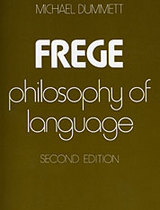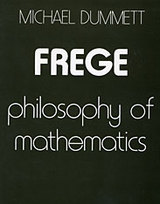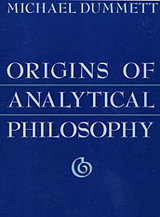

No one has figured more prominently in the study of the German philosopher Gottlob Frege than Michael Dummett. His magisterial Frege: Philosophy of Language is a sustained, systematic analysis of Frege's thought, omitting only the issues in philosophy of mathematics. In this work Dummett discusses, section by section, Frege's masterpiece The Foundations of Arithmetic and Frege's treatment of real numbers in the second volume of Basic Laws of Arithmetic, establishing what parts of the philosopher's views can be salvaged and employed in new theorizing, and what must be abandoned, either as incorrectly argued or as untenable in the light of technical developments.
Gottlob Frege (1848-1925) was a logician, mathematician, and philosopher whose work had enormous impact on Bertrand Russell and later on the young Ludwig Wittgenstein, making Frege one of the central influences on twentieth-century Anglo-American philosophy; he is considered the founder of analytic philosophy. His philosophy of mathematics contains deep insights and remains a useful and necessary point of departure for anyone seriously studying or working in the field.




This collection of Michael Dummett’s philosophical essays, spanning more than twenty years, ranges in topic from time to the philosophy of mathematics, but is unified by a steady philosophical outlook. The essays are, in one way or another, informed by Dummett’s concern with metaphysical questions and his belief that the correct approach to them is via the theory of meaning. Reflected here is Dummett’s conviction that the concept of truth is of central importance both for the theory of meaning and for metaphysics. As he sees it, an adequate elucidation of the concept of truth requires nothing less than the construction of a satisfactory theory of meaning. At the same time, resolution of the traditional problems of metaphysics turns critically upon the way in which the concept of truth applies to each of various large ranges of statements, and especially upon whether the statements in each such range satisfy the principle that every statement must be true or false.
The book includes all Dummett’s philosophical essays that were published or given as public lectures before August 1976, with the exception of a few he did not think it worthwhile to reprint and of the two entitled “What Is a Theory of Meaning?” One essay appears here for the first time in English and two have not been previously published. In an extensive preface, Dummett comments on the essays and seeks to relate them to the philosophical background against which they were written.
READERS
Browse our collection.
PUBLISHERS
See BiblioVault's publisher services.
STUDENT SERVICES
Files for college accessibility offices.
UChicago Accessibility Resources
home | accessibility | search | about | contact us
BiblioVault ® 2001 - 2024
The University of Chicago Press









